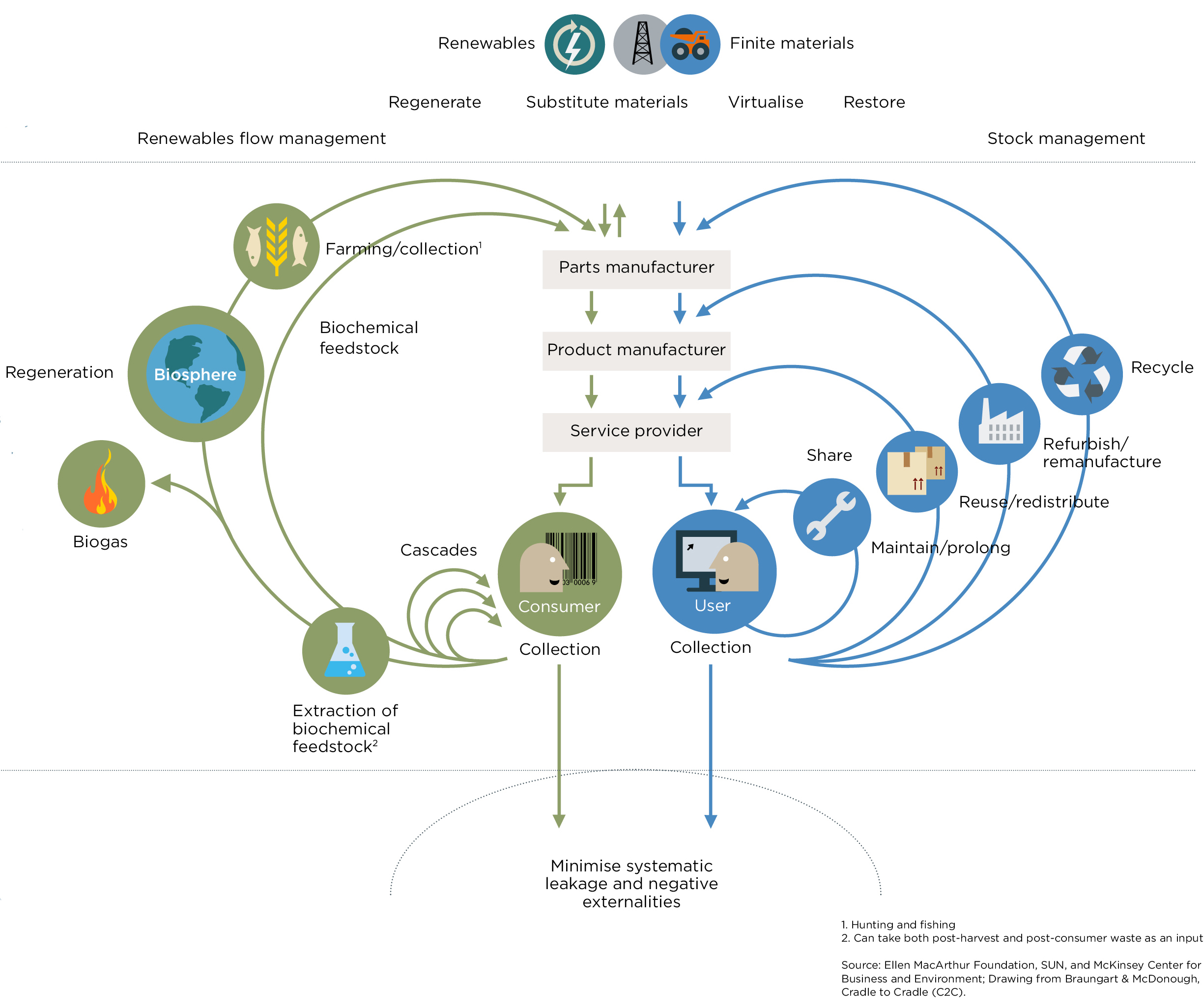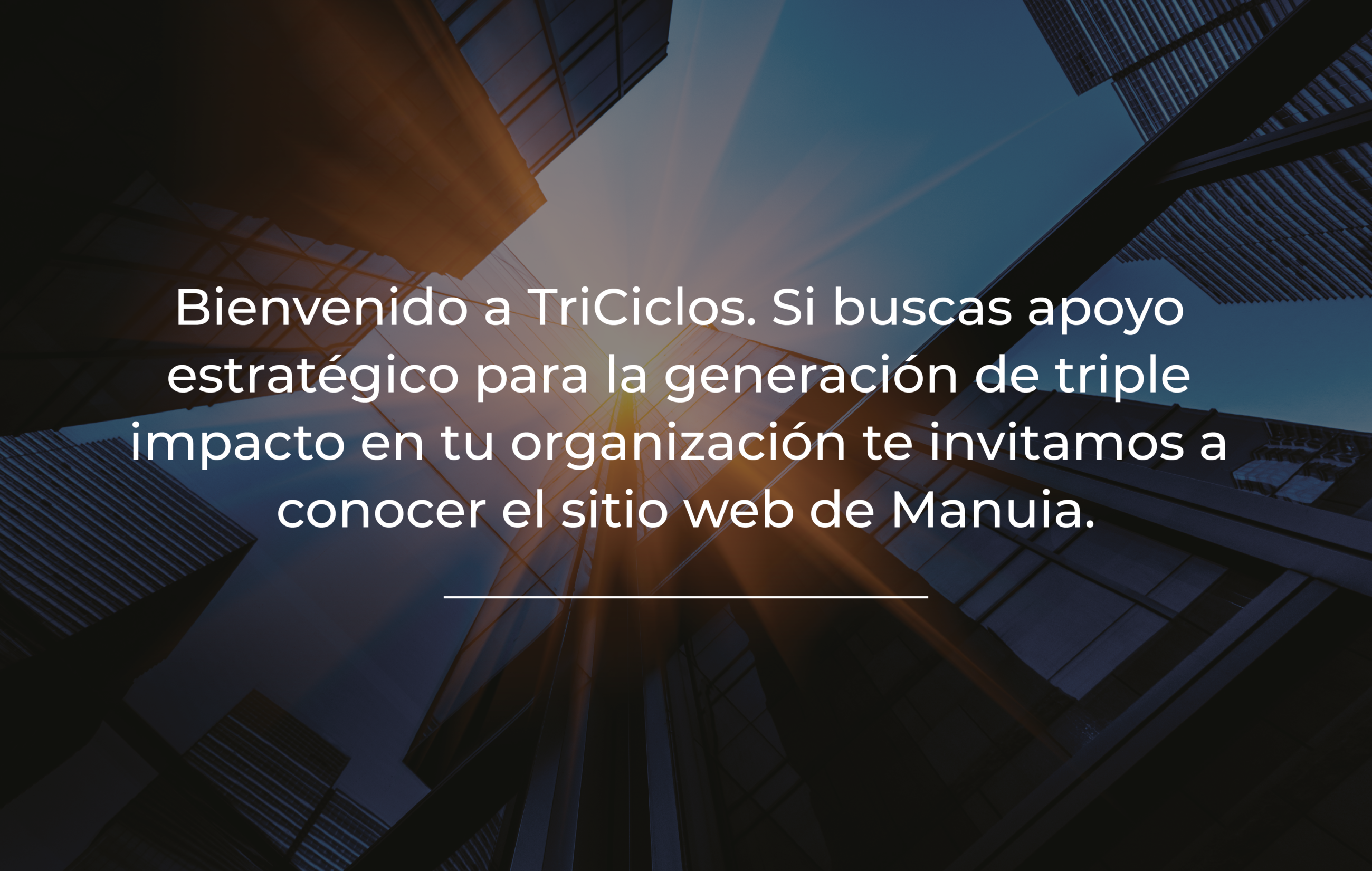
Our mission is to change the concept of waste.
In nature, the concept of waste does not exist, because everything is transformed, being the raw material for new cycles. The linear economic model of “extracting, transforming, consuming and discarding” is doomed to failure because it is primarily responsible for the troubles the environment faces today. Human activity needs to change to the circular model, creating ‘good’ materials and ‘good’ products, to keep them in use as long as possible and with the highest added value possible, avoiding generation of waste.
Circular Economy
Circular Economy is based on three principles:
- Eliminate waste and pollution by principle
- Keep products in cycles of use
- Regenerate natural systems
We believe that using globally aligned language to address local problems is the key to moving forward the Circular Economy. Therefore, our solutions start from well-structured premises by international institutions and bodies, serving as parameter for all involved in this mission:
- ON SDG (Sustainable Development Goals), da ONU.
- Ellen MacArthur Foundation.
- We have signed the Global Pact for Plastics.
- We are certified in Cradle to Cradle Circular Economy Cradle to Cradle.

All rights reserved to Ellen Macarthur Foundation

Cradle to Cradle
“Cradle to Cradle” is considered one of the fundamental pillars of the Circular Economy and it is one of the most important theoretical references. William McDonough, co-author, is TriCiclos partner and a global leader in sustainable development issues. He is also William McDonough + Partners founder and the architect of many flagship sustainable design brands, including NASA’s “Space Station on Earth”.
Currently, he is working on Global Future Council of the World Economic Forum on Future of the Environment and Natural Resources, where Gonzalo Muñoz is also involved.
Sustainable Development Goals
Sustainable Development Goals (ODS) are a global agenda adopted during United Nations Sustainable Development Summit in September 2015, comprising 17 goals and 169 targets to be achieved by 2030

